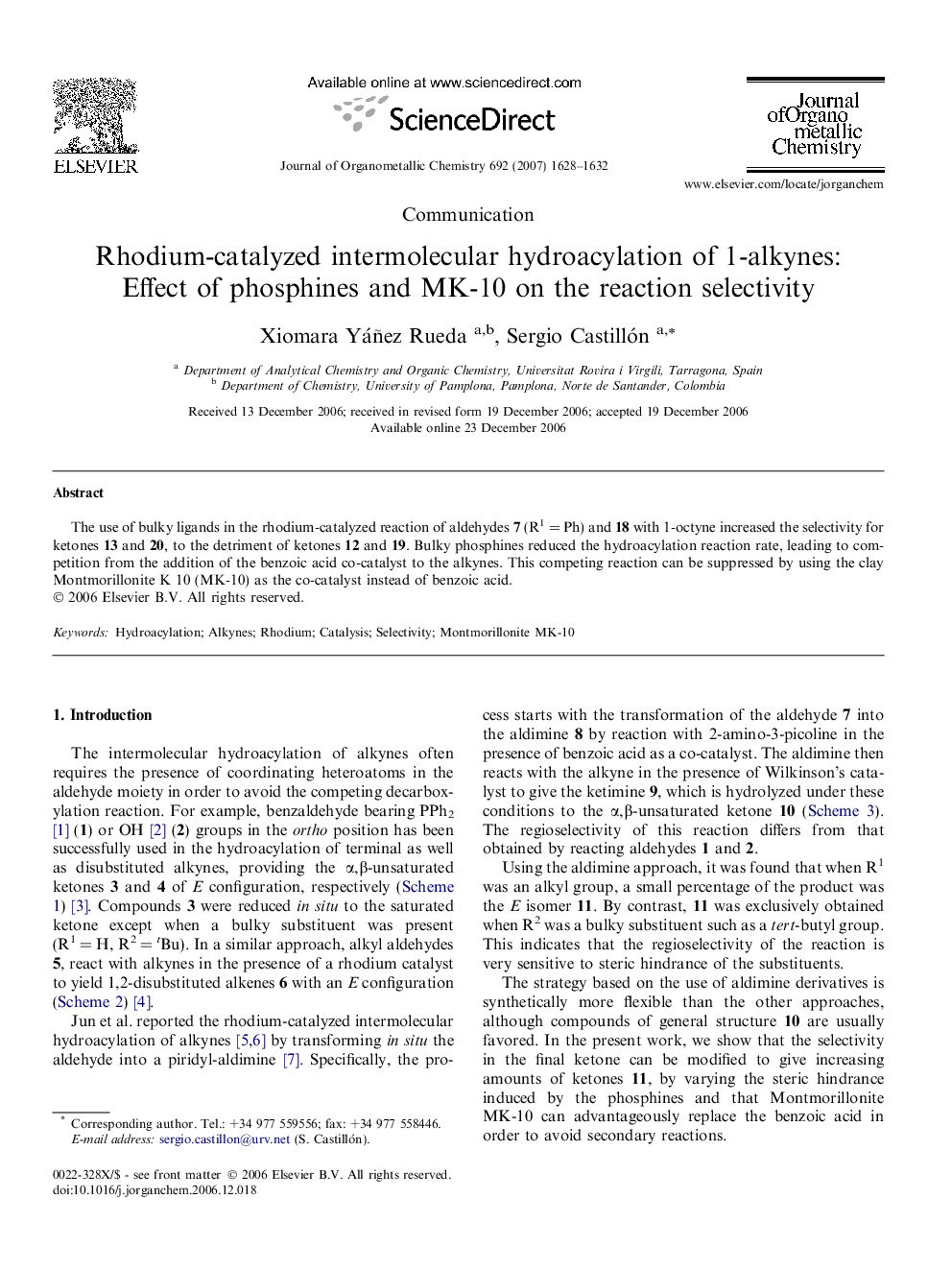| Article ID | Journal | Published Year | Pages | File Type |
|---|---|---|---|---|
| 1327345 | Journal of Organometallic Chemistry | 2007 | 5 Pages |
Abstract
The use of bulky ligands in the rhodium-catalyzed reaction of aldehydes 7 (R1 = Ph) and 18 with 1-octyne increased the selectivity for ketones 13 and 20, to the detriment of ketones 12 and 19. Bulky phosphines reduced the hydroacylation reaction rate, leading to competition from the addition of the benzoic acid co-catalyst to the alkynes. This competing reaction can be suppressed by using the clay Montmorillonite K 10 (MK-10) as the co-catalyst instead of benzoic acid.
Graphical abstractThe use of bulky ligands in the rhodium-catalyzed reaction of aldehydes with 1-octyne increases the percentage of ketones 2 produced, in detriment of ketones 1.Figure optionsDownload full-size imageDownload as PowerPoint slide
Related Topics
Physical Sciences and Engineering
Chemistry
Inorganic Chemistry
Authors
Xiomara Yáñez Rueda, Sergio Castillón,
